It's Job is to Maintain
Calorie Balance
Calories measure how much energy is in food we eat. How many calories each of us need to survive is unique based on our individual genetics, activity levels and stress. Think of it as your unique energy budget. Your metabolism will fight to do whatever it takes to keep this energy budget balanced.
This energy balancing act is run by a part of our brain called the hypothalamus. It's our energy budget director - when it senses an imbalance, it springs into action. It releases hormones that change appetite (calories in) and metabolic rate (calories out) to restore balance and keep us alive.
Our metabolism doesnt care what our vanity goals are - its job is to keep that energy budget balanced so we can stay alive. More stress signals a need for a larger energy budget. Appetite goes up. Metabolic rate goes down. And the body fat reserve increases to compensate.
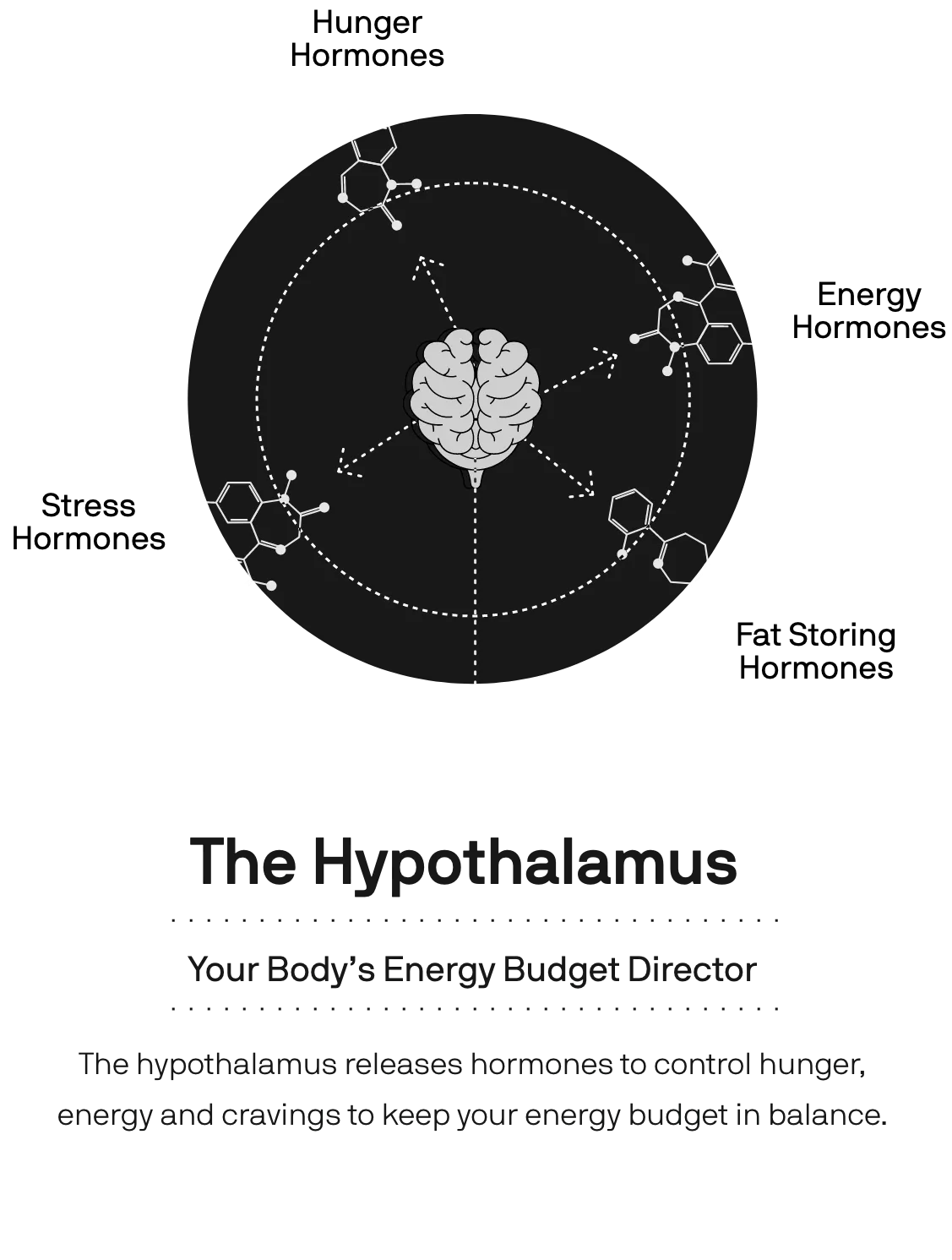
It's Constantly Telling
You What It Needs
This budget balancing act mostly works on autopilot. But sometimes your metabolism gets too stressed and needs a little help, so it starts speaking to you. But it doesn't speak English, it speaks metabolism. And unfortunately, none of us were ever taught to speak metabolism.
However, it does use signals we can easily learn to read: Sleep, Hunger, Mood, Energy and Cravings or SHMEC. SHMEC is a window into your metabolic health. When your SHMEC is in check, your metabolism is balanced. When your SHMEC is out of check, your metabolism is unbalanced and needs something.
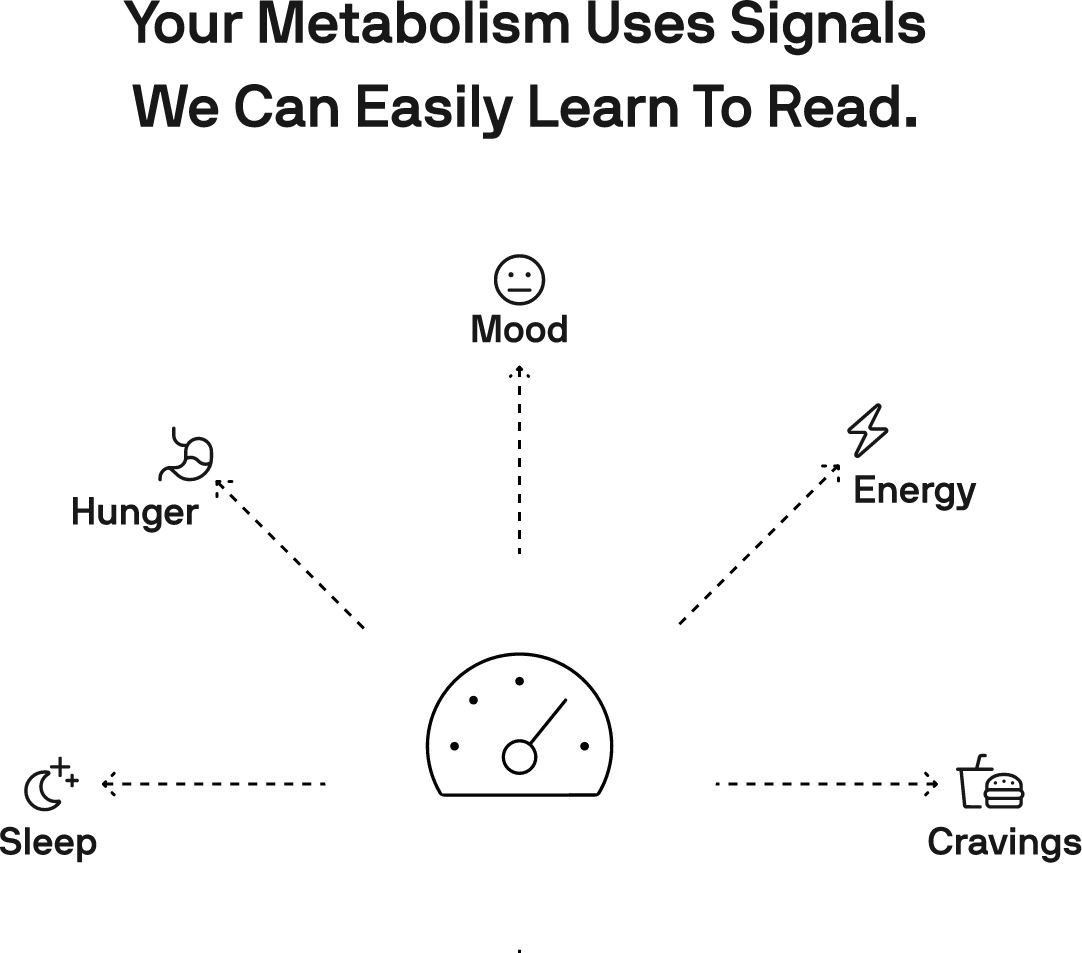
But Push It Too Hard,
It Pushes Back
What throws your SHMEC out of check? Excess stress from any source. One of the largest sources of stress today is the standard harder-is-better approach of eating less and exercising more. It creates too much of a gap in the calories you need vs. what you get. And your metabolism reacts to protect you.
Your metabolism can handle a slight calorie gap from either eating less or exercising more. But do both at the same time for too long, and your metabolism pushes back HARD. Appetite jumps to force you to eat more. Energy drops to force you to burn less. And eventually, willpower runs out.
Worse, this large calorie gap signals to your metabolism that it needs to increase the body fat reserve to handle the extra stress. It overcompensates by increasing appetite and decreasing metabolic rate to increase body fat. That's why repeated cycles of dieting actually result in fat gain. It's frustrating.
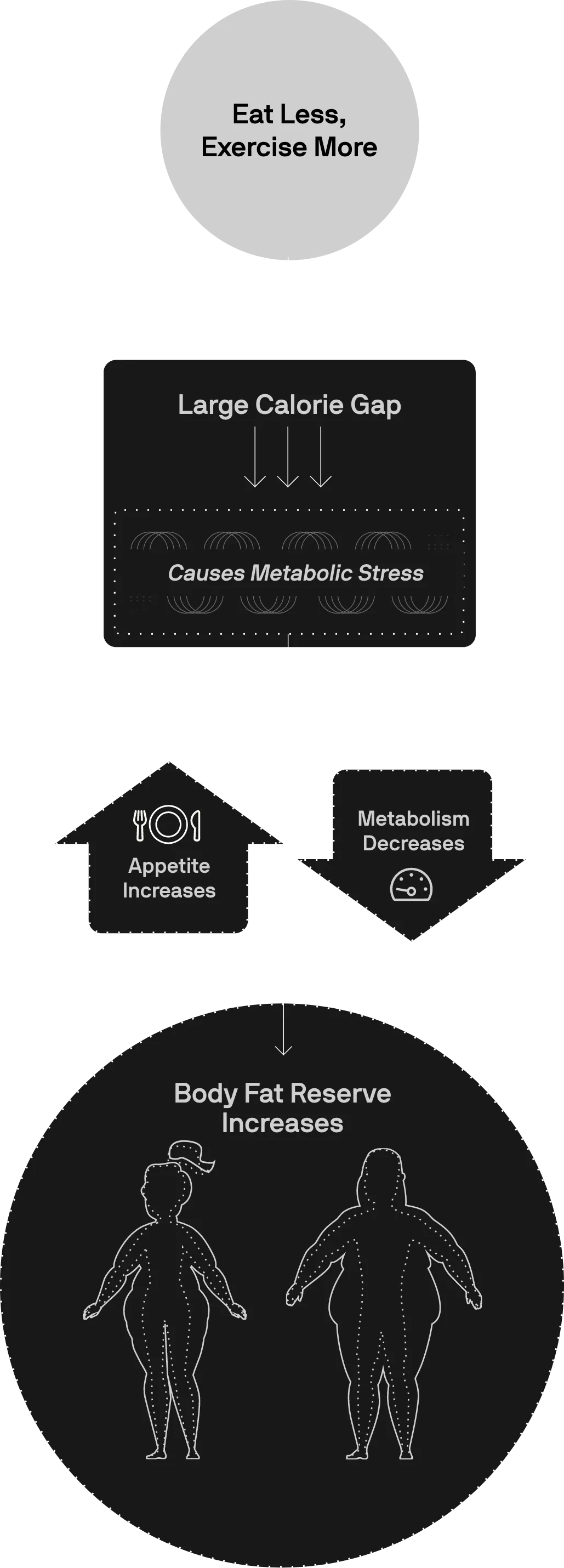
The Law Of Metabolic Flexibility
The Law of Metabolic Flexibility
Did you know research shows that while exercise is fantastic for physical and mental health, it's actually terrible for losing fat?
This may come as no surprise to those who have spent hours exercising only to not get the desired results. It's confusing - you burn extra calories with exercise, so why not?
The answer comes from the Law of Metabolic Flexibility, which states that your metabolism is dynamic - it reacts and adapts to what's happening to your body. While this flexibility allows your metabolism to keep you alive no matter what the world throws at you, it can be incredibly frustrating for fat loss.
Anthropologist Herman Pontzer's groundbreaking research sheds light on this phenomenon. He studied 332 people from five diverse populations and discovered an intriguing pattern: although calorie expenditure slightly increased with more physical activity, it eventually plateaued.
Why does this happen? Your metabolism intelligently reallocates its calorie-burning efforts across other functions to balance out the extra calories burned during exercise. While it's a brilliant survival mechanism, it's not so great for weight loss.
The good news? Our program teaches you how to harness your metabolic flexibility to reach your health goals more efficiently.
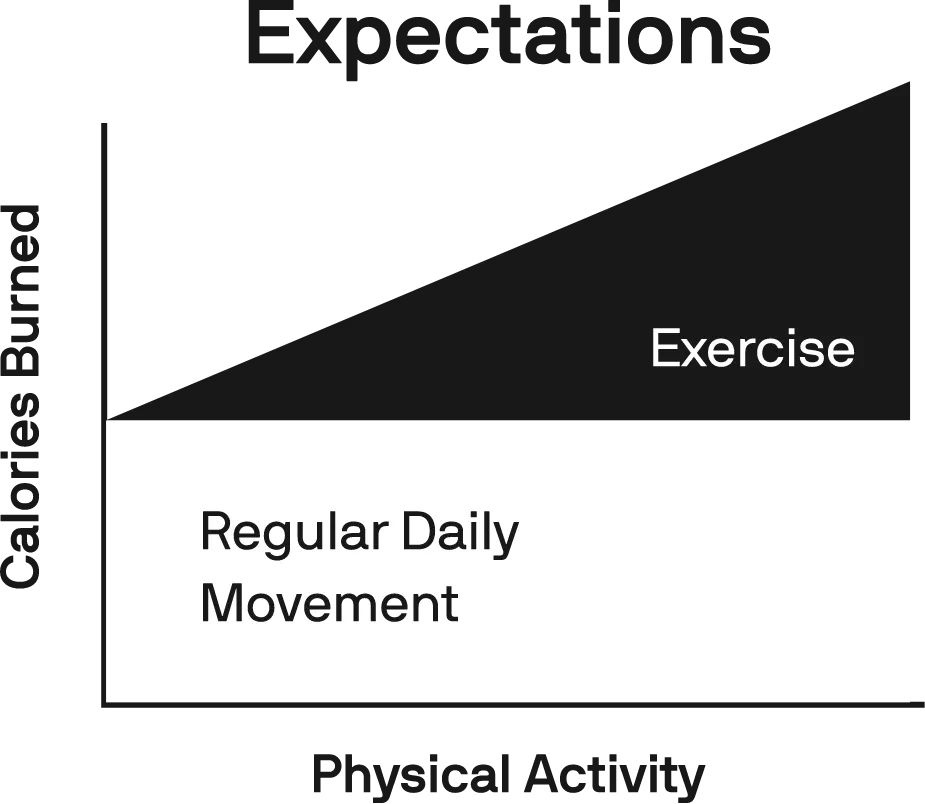
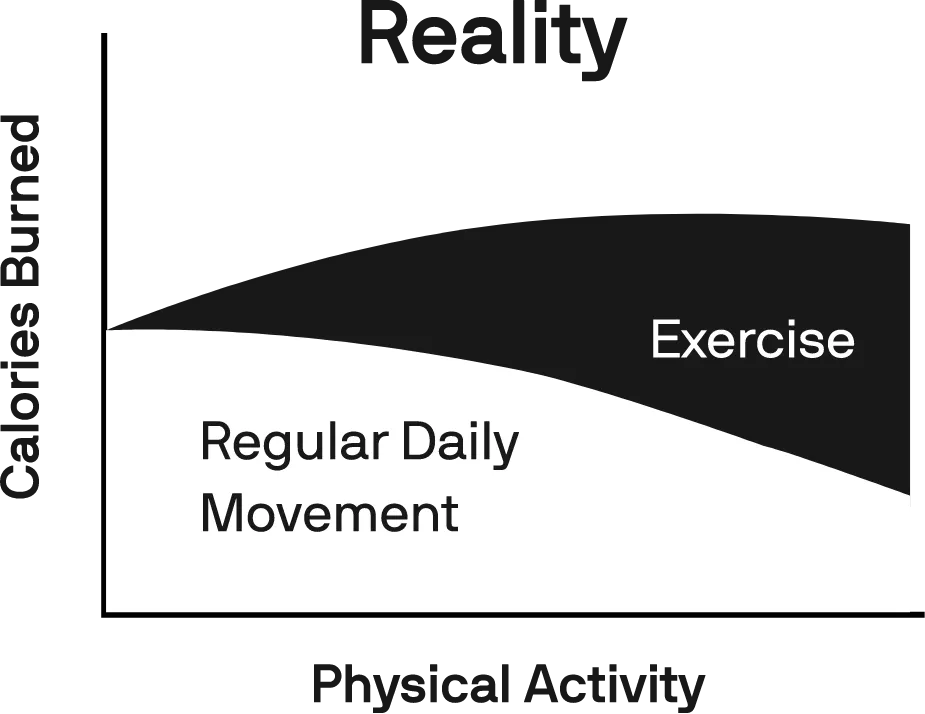
The Law Of Metabolic Individuality
Step2
The Law of Metabolic Individuality
Coming Soon.
Step3
The Law of Limited Willpower
Coming Soon.
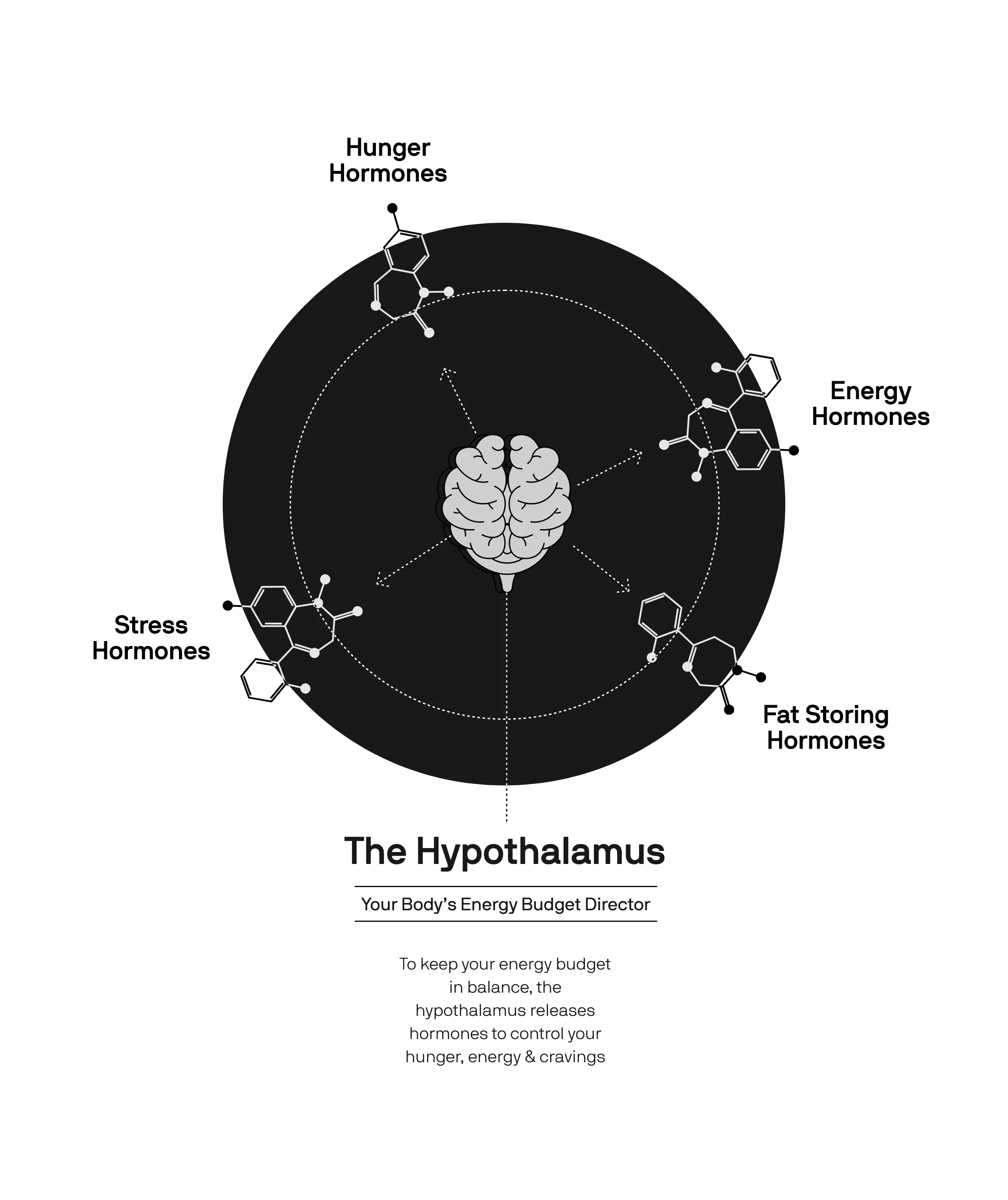
It's Job is to Maintain
Calorie Balance
Calories measure how much energy is in food we eat. How many calories each of us need to survive is unique based on our individual genetics, activity levels and stress. Think of it as your unique energy budget. Your metabolism will fight to do whatever it takes to keep this energy budget balanced.
This energy balancing act is run by a part of our brain called the hypothalamus. It's our energy budget director - when it senses an imbalance, it springs into action. It releases hormones that change appetite (calories in) and metabolic rate (calories out) to restore balance and keep us alive.
Our metabolism doesnt care what our vanity goals are - its job is to keep that energy budget balanced so we can stay alive. More stress signals a need for a larger energy budget. Appetite goes up. Metabolic rate goes down. And the body fat reserve increases to compensate.
It's Constantly Telling
You What It Needs
This budget balancing act mostly works on autopilot. But sometimes your metabolism gets too stressed and needs a little help, so it starts speaking to you. But it doesn't speak English, it speaks metabolism. And unfortunately, none of us were ever taught to speak metabolism.
However, it does use signals we can easily learn to read: Sleep, Hunger, Mood, Energy and Cravings or SHMEC. SHMEC is a window into your metabolic health. When your SHMEC is in check, your metabolism is balanced. When your SHMEC is out of check, your metabolism is unbalanced and needs something.


But Push It Too Hard,
It Pushes Back
What throws your SHMEC out of check? Excess stress from any source. One of the largest sources of stress today is the standard harder-is-better approach of eating less and exercising more. It creates too much of a gap in the calories you need vs. what you get. And your metabolism reacts to protect you.
Your metabolism can handle a slight calorie gap from either eating less or exercising more. But do both at the same time for too long, and your metabolism pushes back HARD. Appetite jumps to force you to eat more. Energy drops to force you to burn less. And eventually, willpower runs out.
Worse, this large calorie gap signals to your metabolism that it needs to increase the body fat reserve to handle the extra stress. It overcompensates by increasing appetite and decreasing metabolic rate to increase body fat. That's why repeated cycles of dieting actually result in fat gain. It's frustrating.

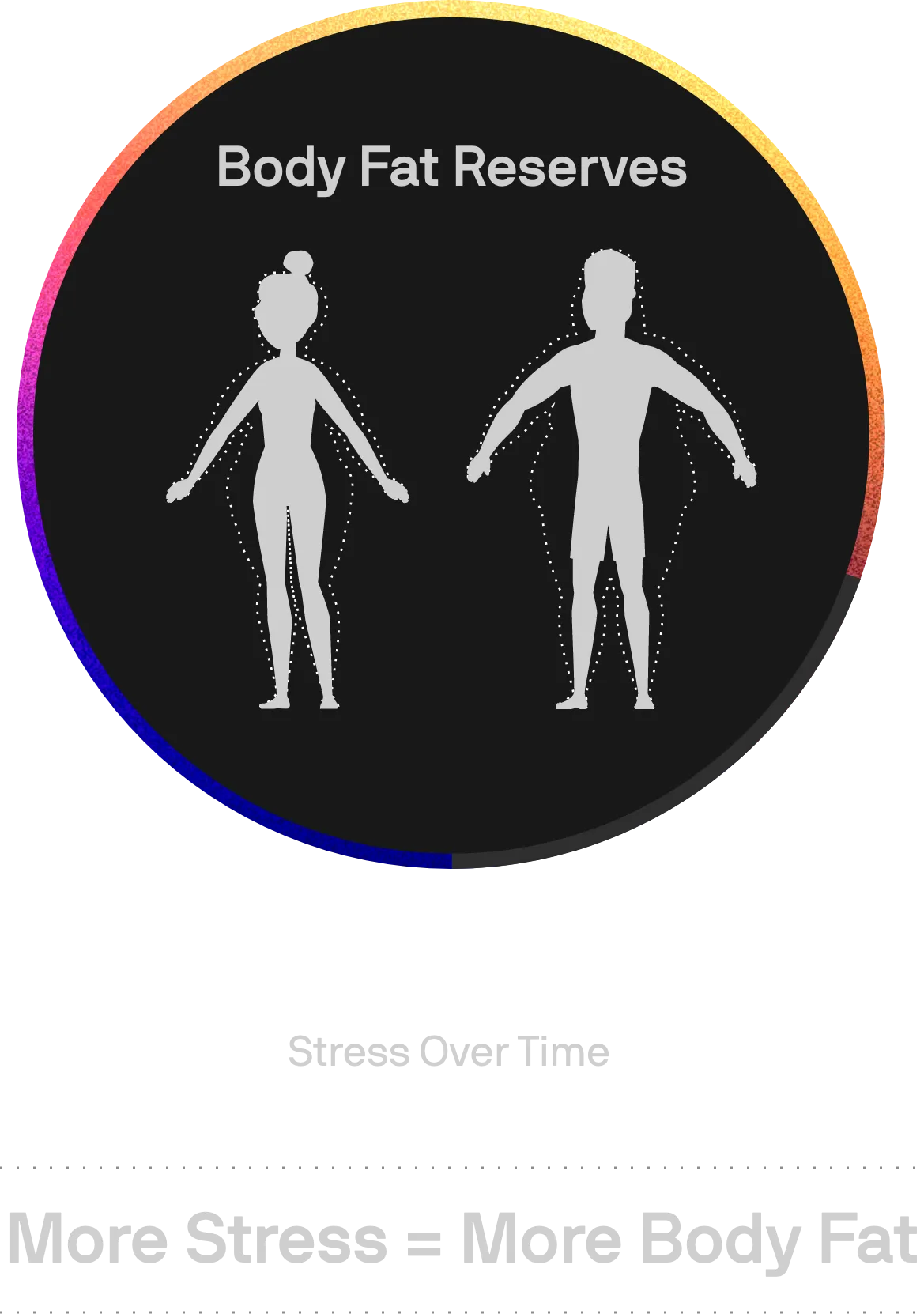

 to Hit Your Goals
to Hit Your Goals